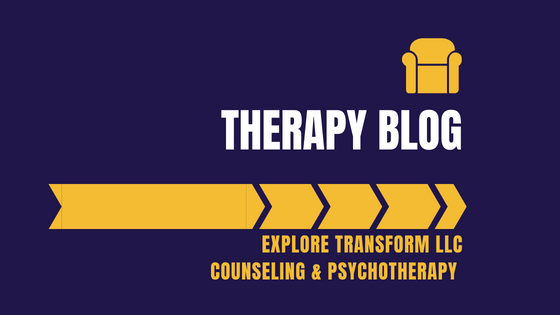|
I love being a psychotherapist and parent because of the overlap: As I help clients to navigate life’s challenges, I grow and learn as a parent, and vice versa. One of the growth areas that offers a continuing opportunity for reflection is assertiveness.
We live in a world with other people, so we are continuously trying to strike a balance between the needs, emotions and experiences of others, and how that impacts our own needs, emotions, and experiences. To lean too much one way, and we become passive, acquiescing to every other person’s needs rather than respecting any of our own. If we have leaned too far this way, we might have been called “a people-pleaser” or “an appeaser.” If we had the misfortune of falling under the spell of someone abusive, they might praise us for our passivity, saying that we are “easy to get along with” or “no drama.” The trouble is, to live a life of pure passivity is not sustainable. If we go too far the other way, we might risk becoming aggressive. This is where we can only see our own needs, emotions, and experiences, without any care for others. So how do we strike a balance? Assertiveness is the sweet spot between passivity and aggression. Sometimes it is useful to visualize it holding two hands out: You can hold your own needs, emotions, and experiences as valid, whilst also holding the other person’s. Both are valid, and the real work is trying to negotiate a middle ground or overlap. Sometimes you will not find that area of compromise, and you have to decide which way to lean and weigh up the consequences of that choice. And sometimes you do not have the choice or freedom to exercise assertiveness (for example, if you are in a work environment where you need to keep your job to pay the bills). It is widely recognized that certain skills are useful to keep a balanced, assertive approach. For example, becoming comfortable with saying no, using short sentences without a need to overly explain your reasoning, and calmy repeating your point in the face of resistance. I always like to use the imagery of a tree swaying gently in the wind of resistance; you are flexible, hearing what they have to say, but remaining firmly rooted in the moment. So, we know that assertiveness falls in the middle of two extremes, but what does that look like in reality? - Assertiveness is not aggression – Aggression is an attempt to dominate others without respecting their rights or boundaries. Example: “I will leave you if you work late tonight.” Assertiveness is not passivity – Passivity is a failure to communicate one’s needs or to allow others to encroach on your boundaries. This could be the result of fear, or an inability to assert one’s rights, but it could also be an attempt to manipulate someone. Example: “Fine, work late, see if I care” (when they really do care). Assertiveness is an ability to hold your own needs, emotions, and experiences as valid, whilst also holding the other person’s – Example: “I feel lonely when you come home late from work.” I use Polyvagal Theory to help my clients understand their behavior, emotions, and bodily sensations. I have spoken about this theory in other articles, so here is a link to a quick recap. From a Polyvagal perspective, if we are not assertive then it might be because our nervous system is picking up cues of danger. In response, we might fight, flee or freeze, or we might shut down. In other words, we might use the sympathetic nervous system (if our nervous system senses that we can overcome or escape the danger), or we might switch to a dorsal vagal response, which means to go numb or blank-minded if there is no escape. There is also the fawn response, in other words, we hope to appease (or submit to) the aggressor to escape the danger. None of this is assertive. To become assertive, we need to feel safe to do this, or, in other words, we need to be in a ventral vagal state. There might be many reasons why we do not feel safe, and some of those reasons might not reflect present-day reality. For example, if a work colleague, or teacher or friend reminds us of an overbearing caregiver from our childhood, we might become ‘triggered’ by this association and lose the ability to exercise our skills of assertiveness. We can learn how to put ourselves in the best position to use skills of assertiveness by doing two things –
Chris Warren-Dickins LLB MA LPC Explore Transform LLC Counseling and Psychotherapy in Bergen County, New Jersey www.exploretransform.com +1 (201) 779-6917 #Assertiveness, #Relationships, #Counseling, #Psychotherapy, #FindATherapist, #ridgewood, #BergenCounty, #NewJersey, #teletherapy, #FindACounselor, #MentalHealth, #Depression, #Anxiety, #Trauma, #Stress Comments are closed.
|
Due to the COVID-19 health crisis, we are only offering sessions online.
Our address is 143 E Ridgewood Ave, #1484, Ridgewood, NJ 07450
Telephone: +1-201-779-6917
Lead clinician: Chris Warren-Dickins LLB MA LPC
EXPLORE TRANSFORM LLC
Our address is 143 E Ridgewood Ave, #1484, Ridgewood, NJ 07450
Telephone: +1-201-779-6917
Lead clinician: Chris Warren-Dickins LLB MA LPC
EXPLORE TRANSFORM LLC
© COPYRIGHT 2024 CHRIS WARREN-DICKINS. ALL RIGHTS RESERVED. NJ LICENCE # 37PC00618700



 RSS Feed
RSS Feed
